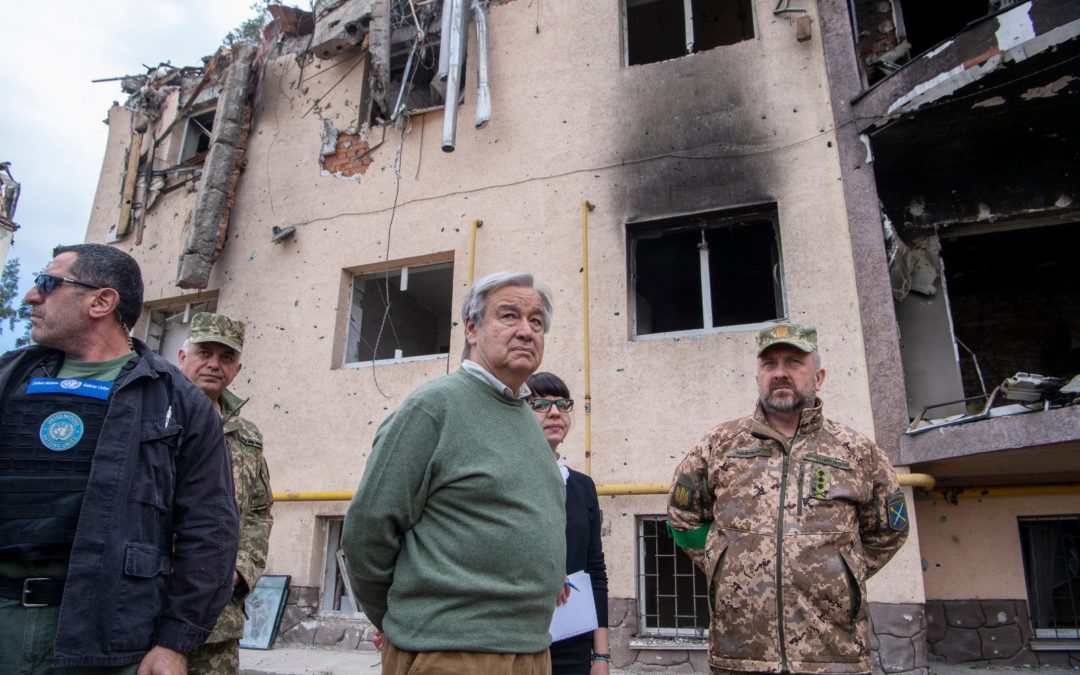Today UN Secretary General Antonio Guterres visited hard-hit cities in Ukraine, where he met with victims of Russian atrocities. He called the war “evil.”
Touring devasted neighborhoods, Guterres spoke emotionally of his own grandchildren. “I must say what I feel. I imagined my family in one of those houses that is now destroyed and black,” he said. “I see my granddaughters running away in panic, part of the family eventually killed.”
His “war is evil” comment followed his statement that “war is an absurdity in the 21st century.” In a separate interview, he repeated the idea: “No way a war can be acceptable in the 21st century.”
Russia’s pitiless advance against Ukraine is unspeakably awful. One can imagine the horrific “absurdity” of seeing leafy neighborhoods turned into blackened warzones. It’s unbelievably senseless, from the victim’s standpoint at least.
Gutteres’ “war is evil” comment set off a Twitter avalanche. Many focused on the apparent double standard:
why dont you investigate the war crimes commited in Arganistan, Lybia, Palestine, Syria, and Iraq? [sic]
But the comment about the 21st century struck a nerve as well.
Did the century mark somehow change us into better people, incapable of even thinking about war, seeing as it is so absurd?
Westerners certainly thought so at the start of the 20th century. Hopefulness in human goodness, science and progress ran high. Until 1917.
And now it’s 2022. Does Gutteres mean that war is particularly unacceptable in this century because this is Europe after all? Because of all the world has suffered in the pandemic? Because of the (very scary) possibility of nuclear war? Because the global community has bigger things to worry about – like climate change?
Or is there still this lingering feeling that we are above this? We are better than this. This is not us. We’re advanced. Tolerant. Nice. We’ve learned. We don’t do war anymore.
Apparently, we do.
Writing in 1923, Presbyterian preacher J. Gresham Machen reflected on the impact of WWI on the public’s consciousness of its own culpability, or sin.
“In time of war, our attention is called so exclusively to the sins of other people that we are sometimes inclined to forget our own sins…It is quite right to be indignant against any oppression of the weak which is being carried on by the strong. But such a habit of mind, if carried over into the days of peace, has its dangers.”[1]
The danger is that we think war is uniquely extraordinary. And in grotesque ways it is. It is the noxious flowering of the seeds of ambition, fear, jealousy and aggression – garden-variety sins that spring up in every family, community, workplace, political party. And nation. War is in us like seeds.
Guterres is right to call Russia’s war against Ukraine evil. It absolutely is. War is always absurd and unacceptable, whatever the continent or century. But let’s not be shocked. There was gambling in Casablanca, after all.
[1] Christianity and Liberalism, J. Gresham Machen, 1923.

